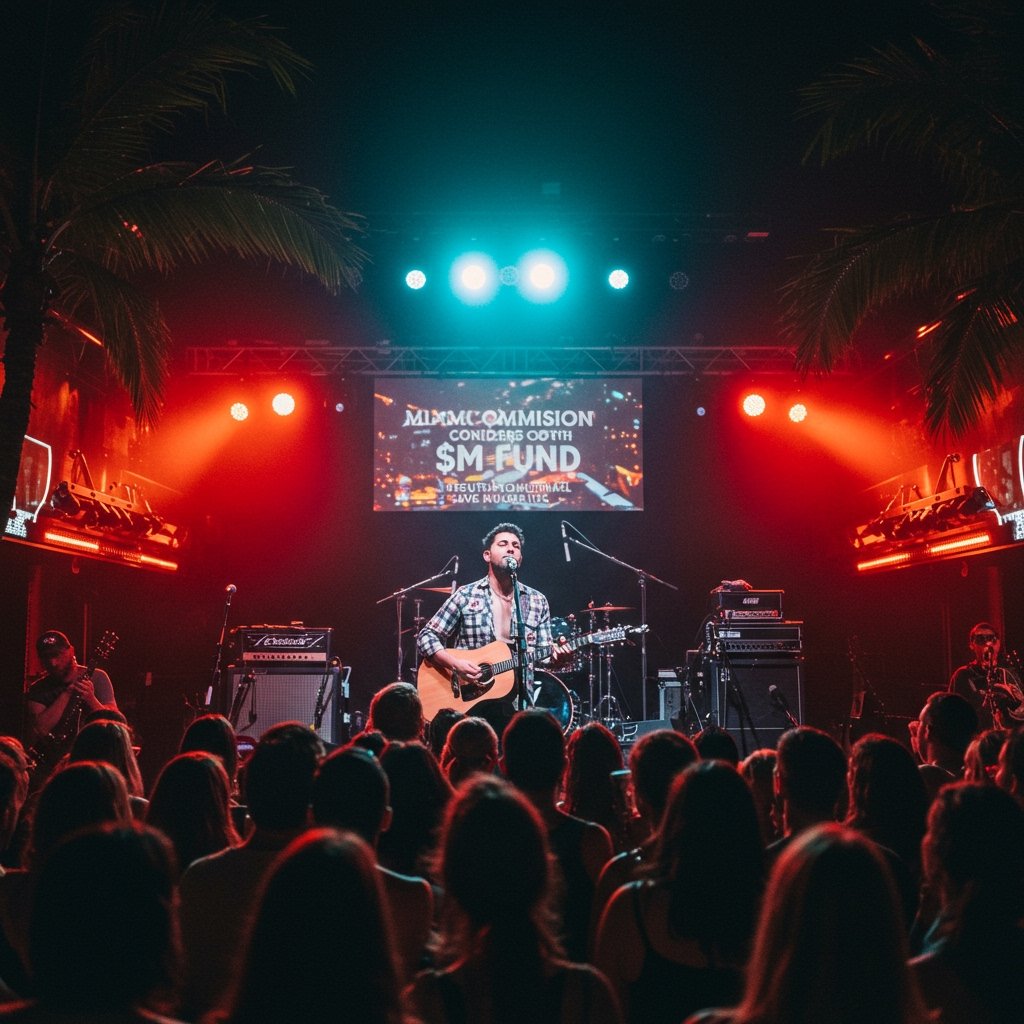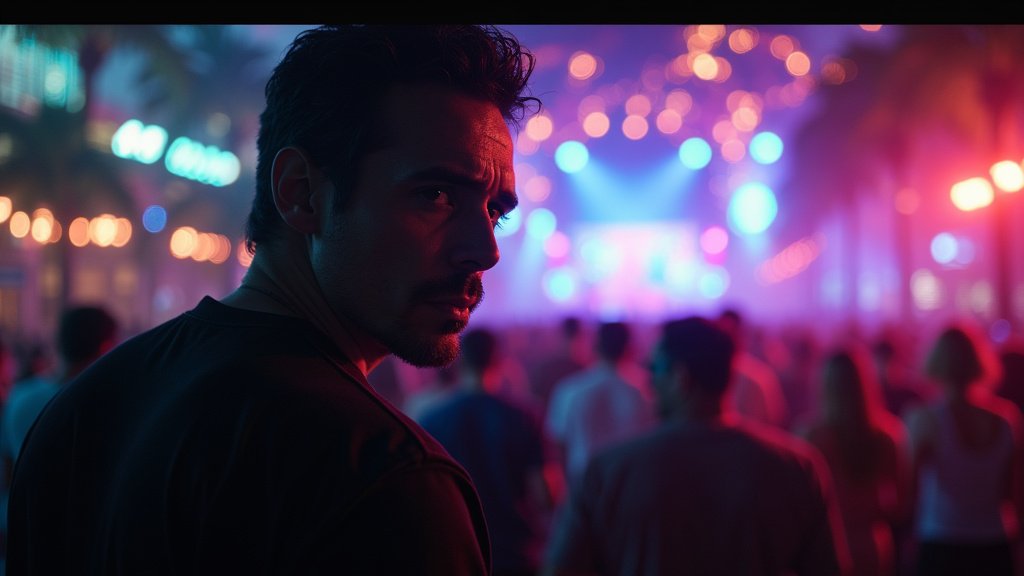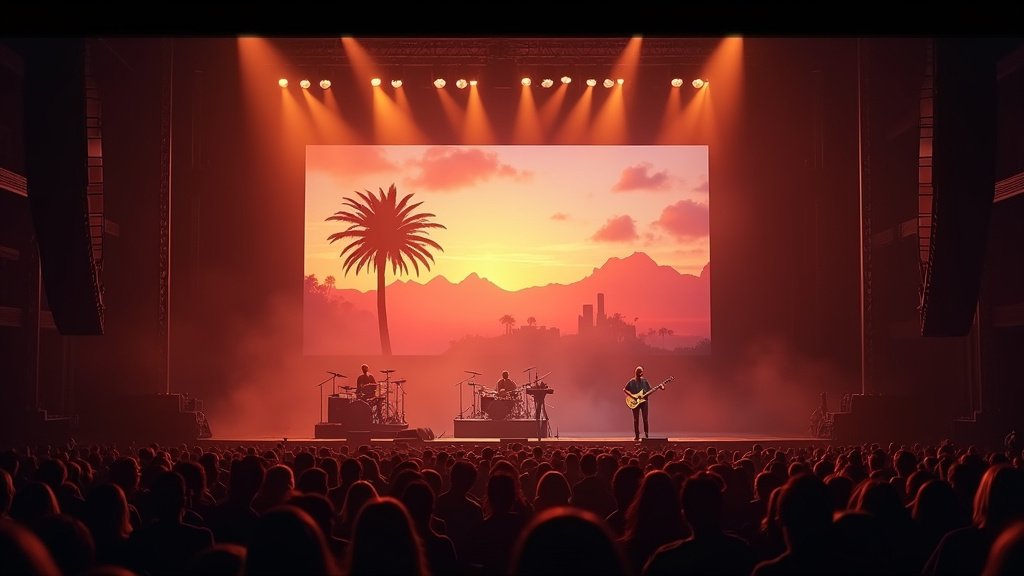Miami Weighs Major Support for Live Music Scene
Miami City Commissioners recently convened to deliberate a pivotal proposal aimed at injecting economic vitality and bringing much-needed clarity to the city’s embattled live music establishments. The initiative, officially titled the “Miami Live Music Venue Sustainability Initiative,” represents a significant effort to address the systemic challenges facing venues that form the backbone of Miami’s vibrant cultural nightlife.
Introduced during the commission session on June 3rd at Miami City Hall, the comprehensive proposal championed by Commissioner Javier Perez outlines a two-pronged approach: establishing a dedicated financial resource and reforming cumbersome regulatory processes, specifically focusing on noise ordinance enforcement.
A Dedicated Lifeline: The Proposed $5 Million Fund
At the heart of the initiative is the proposed creation of a $5 million dedicated fund. This substantial sum is earmarked to originate from the city’s resort tax revenue, a funding source typically tied to tourism-related activities. The intention is to deploy these funds directly to qualifying venues through various mechanisms.
The primary proposed use of the fund is to offer direct grants to help venues cover operational costs, invest in soundproofing technology, or make necessary capital improvements. Beyond direct grants, the initiative also suggests exploring potential tax incentives as another avenue for financial relief, aiming to lighten the economic burden on venue owners and operators who often navigate tight margins.
Proponents argue that this financial intervention is crucial for the survival of many venues, which have faced increasing economic pressure, exacerbated by factors including rising rents and changing consumer habits. The $5 million fund is envisioned not just as a temporary fix but as a strategic investment in preserving a critical component of Miami’s identity and economic ecosystem.
Untangling the Red Tape: Ordinance Review and Reform
The second major pillar of the “Miami Live Music Venue Sustainability Initiative” mandates a thorough review of existing noise ordinance enforcement within designated entertainment zones across the city. This focus stems from long-standing complaints and challenges faced by venues regarding the application and enforcement of Chapter 21 of the City Code, which governs noise regulations.
Currently, venues often report difficulties operating under regulations perceived as inconsistent or overly restrictive, sometimes leading to unpredictable enforcement actions that disrupt live performances and business operations. The review is specifically targeting areas known for their concentration of entertainment venues, including iconic neighborhoods like Wynwood and Little Havana.
The goal of this mandated review is to establish clearer, potentially zone-specific regulations. This would involve a re-evaluation of existing rules, including potentially establishing revised decibel limits tailored to the specific characteristics of different entertainment districts. Furthermore, the review will scrutinize and aim to streamline permitting processes related to live music events, which can often be complex and time-consuming for venue operators.
The initiative recognizes that a thriving live music scene requires not only financial stability but also a predictable and reasonable regulatory environment. By addressing the operational challenges posed by the current system, the city hopes to create a more favorable climate for venues to operate and flourish without the constant threat of arbitrary enforcement or bureaucratic hurdles.
The Stakes for Miami’s Cultural Landscape
The debate surrounding the “Miami Live Music Venue Sustainability Initiative” underscores the perceived importance of live music venues to the city’s cultural fabric and tourism appeal. These establishments are often incubators for local talent, drivers of nighttime economy, and key components of the unique character of neighborhoods like Wynwood and Little Havana.
The inconsistent enforcement of Chapter 21 of the City Code and the financial strains on venues are not merely business problems; they represent a threat to Miami’s identity as a dynamic cultural hub. The proposed $5 million fund and the commitment to regulatory clarity are seen by many as essential steps towards safeguarding this vital industry.
The deliberation at Miami City Hall on June 3rd marks a critical juncture in the city’s relationship with its live music scene. The initiative introduced by Commissioner Javier Perez signals a potential shift towards proactive support, moving beyond reactive enforcement to create a sustainable future for performance spaces.
While the summary details the components and intent of the proposal, the commission’s debate process itself involves weighing the various aspects, considering public input, and determining the feasibility and final structure of the initiative. The outcome of these discussions will ultimately shape the future landscape for live music venues in Miami, potentially offering significant economic relief and establishing the regulatory clarity needed for them to thrive.





